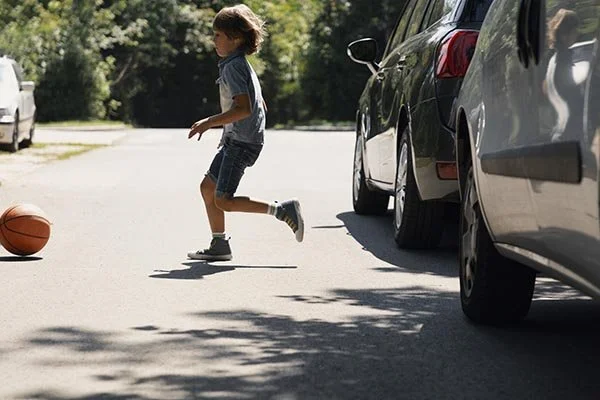Helping Kids Develop Impulse Control
Part 8 of 10 in the “Managing Impulsivity” Series
Impulsivity is a normal part of childhood. Kids blurt out answers, grab toys, hit when they’re overwhelmed, or melt down when they’re overstimulated. But for some children, impulsivity becomes more than a developmental phase—it becomes a daily struggle.
If you’re raising or teaching a child who seems to “go from 0 to 100,” it can feel like walking on eggshells or constantly playing catch-up. But here’s what we want you to know:
Impulsivity in children isn’t a discipline issue. It’s a regulation skill still under construction.
And just like reading, riding a bike, or tying shoes—some kids need more time and support to learn it.
What Impulsivity Looks Like in Kids
Children often show impulsivity in ways that feel disruptive or confusing to adults, including:
Hitting, yelling, or pushing when frustrated
Interrupting or talking over others
Racing through tasks and missing details
Running off impulsively in public spaces
Making “bad choices” they later regret
Struggling to wait, share, or follow multi-step directions
These behaviors aren’t rooted in malice. They’re signs that the child’s executive functioning system—the part of the brain responsible for planning, attention, and inhibition—is still growing.
And growth doesn’t happen in isolation. It happens in relationship.
Why Kids Can’t “Just Stop”
Telling a child to “think before you act” or “calm down” might make sense to you—but those words don’t land if the child doesn’t yet have access to the pause.
When kids are dysregulated, their emotional brain takes over. And in that moment, what they need isn’t correction—it’s co-regulation.
That might sound like:
“I see you’re having a big feeling. I’m right here with you.”
“Let’s take a breath together before we make our next choice.”
“I’ll help you find the words—we can figure this out.”
Kids learn impulse control not by being punished, but by being taught.
Slow is strong. Repetition is how we rewire.
“Impulse control
isn’t taught in the
moment of meltdown—
it’s built
in the calm before and after.”
How Therapy Supports Impulse Control in Kids
In therapy, we use play-based tools, regulation strategies, and emotion coaching to help children build the foundation for self-control. That includes:
Naming feelings in real time
Practicing “pause” skills in a safe space
Learning visual cues, body signals, and sensory strategies
Engaging in games that build attention, flexibility, and turn-taking
Helping caregivers model and reinforce regulation patterns at home
Therapy becomes the practice field for skills that can be transferred to school, home, and peer relationships.
When Therapy and Neurofeedback Work Together
For some children, especially those with ADHD, sensory sensitivity, or trauma histories, impulsivity isn’t just behavioral—it’s neurological. Their brains may be firing too fast in some areas, too slow in others, or struggling to shift between states.
In these cases, neurofeedback can be a powerful support.
It helps train the brain to become more flexible, focused, and calm—making it easier for your child to use the regulation skills they’re learning in therapy.
If your child’s impulsivity feels especially intense or hard to manage, ask us about combining talk-based therapy with neurofeedback. Together, they create a stronger foundation for lasting change.
How Parents Can Help
If you’re parenting a child with high impulsivity, you’re not doing anything wrong. And you’re not alone. Your child doesn’t need you to be perfect—they need you to be present.
Here’s what helps:
Predictable routines
Clear and consistent expectations
Emotional coaching, not just discipline
Space to move, play, and reset
Gentle reflection after the fact: “What was going on inside you when that happened?”
And most importantly: patience. Progress takes time, especially for kids whose nervous systems are highly sensitive or easily overwhelmed.
Stabilizing your child’s world is how you support their growth.
If your child struggles with emotional outbursts, reactivity, or self-control, our children’s therapists are here to help. We’ll work with you to support your child’s emotional development and help them build skills that last.

